The Global Snow Leopard Ecosystem Protection Programme (GSLEP), along with partner organizations have established a database for Illegal Wildlife Trade to collate, and share information across the snow leopard range. More information is provided below:
Global Snow Leopard Illegal Wildlife Crime Database
Combatting Poaching and Illegal Wildlife Trade
Illegal Wildlife Trade (IWT) has continued to be a prominent threat to snow leopards globally. Poaching for snow leopard fur and even bones has been reported across the range. However, several dimensions of this threat such as the magnitude, the scale, regions where poaching is common, are largely unknown.
To gain a better understanding of the nature of poaching and IWT in the snow leopard range, GSLEP along with its partner organizations have established the Global Snow Leopard Illegal Wildlife Crime Database. Data on poaching and illegal wildlife trade are not limited to snow leopards, but extend to all species that are found in the snow leopard range. The purpose of the database is to collect information on IWT from across the snow leopard range. It will be used to improve conservation efforts to address this threat through improved data collation, information generation, information sharing, and international cooperation.
Individuals or organizations can submit a First Information Report (FIR) under the tab “submit data”. Persons submitting the FIR will receive a follow-up email requesting more information.
Any information related to illegal trade and poaching such as border seizures of skins, bones, etc, information on snow leopard parts used in ornaments, medicines, etc, online wildlife sale portals or live trade across borders, or instances of illegal poaching can be reported.
Your information on IWT and poaching can become a part of the shared global effort to combat this threat. Every bit of information counts.
You can also request information from the database. Currently, the database holds information such as the regions in the world illegal trade or poaching has been reported, the number of snow leopards involved, and the parts of the snow leopard confiscated (fur, bones, etc). If there is specific type of information you would like, please put in a request and we will get back to you.
Data Submission and Inclusion in the Database
Data can be submitted by first clicking on the “Data” tab on the right hand top corner. This will take you to the Data section. Clicking on the “Submit data” form will take you to the First Information Report. This is common for both databases. Once the data is submitted the GSLEP team will reach out to you requesting specific information about each case. This data will then be validated by the GSLEP team or by the country focal points. Once the data is validated your information will be included in the database.
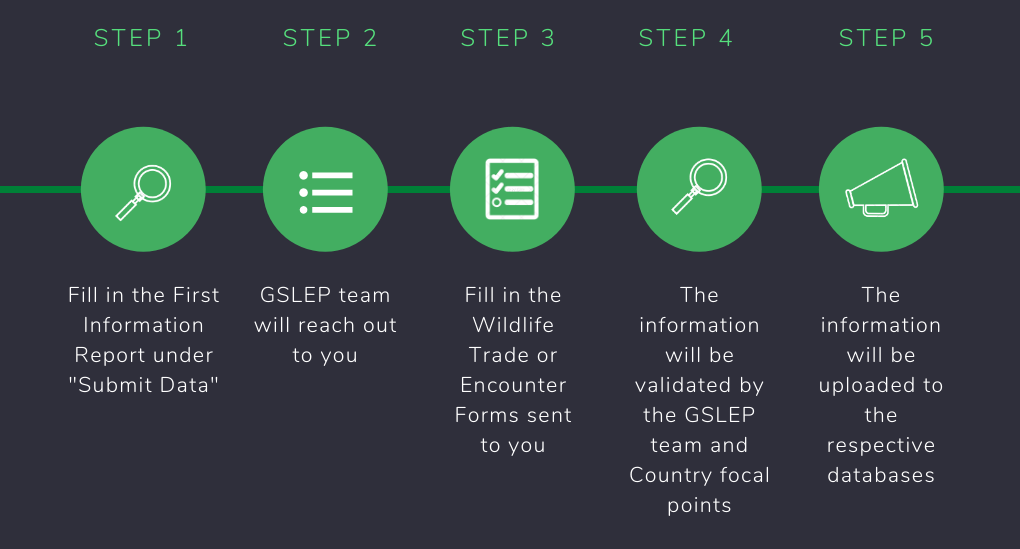
Our Partners
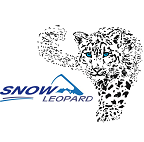
Global Snow Leopard and Ecosystem Protection Program (GSLEP)
The Global Snow Leopard and Ecosystem Protection Program (GSLEP) seeks to address high-mountain development issues using the conservation of the charismatic and endangered snow leopard as a flagship.
The GSLEP is a range-wide effort that unites range country governments, nongovernmental and inter-governmental organizations, local communities, and the private sector around a shared vision to conserve snow leopards and their valuable high-mountain ecosystems.
Read More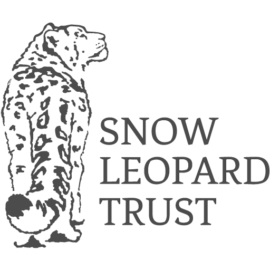
Snow Leopard Trust
Snow Leopard Trust is the largest and oldest organization dedicated to conserving snow leopards and high mountain ecosystems of Asia. SLT is a global leader in snow leopard science and community-based conservation and is key technical partner of GSLEP.
Read More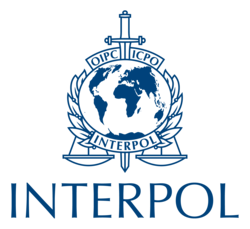
INTERPOL
The world’s largest international police organization with 194 member countries; the only organization with a mandate to share and process criminal information globally.
Read More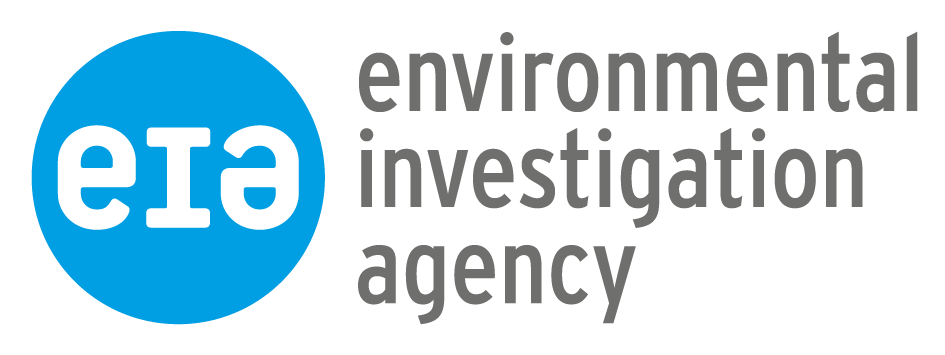
Environmental Investigation Agency (EIA)
Bringing 35 years of experience, and a wealth of data, related to the illegal and unsustainable killing of, and trade in, threatened and endangered species.
Read More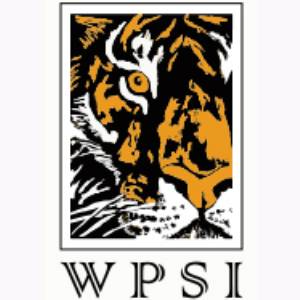
Wildlife Protection Society of India (WPSI)
Bringing 25 years of experience in protecting India’s wildlife from poaching and trafficking. They possess the most comprehensive wildlife crime database in India and have expertise on fighting poaching and trafficking for other big cat species.
Read More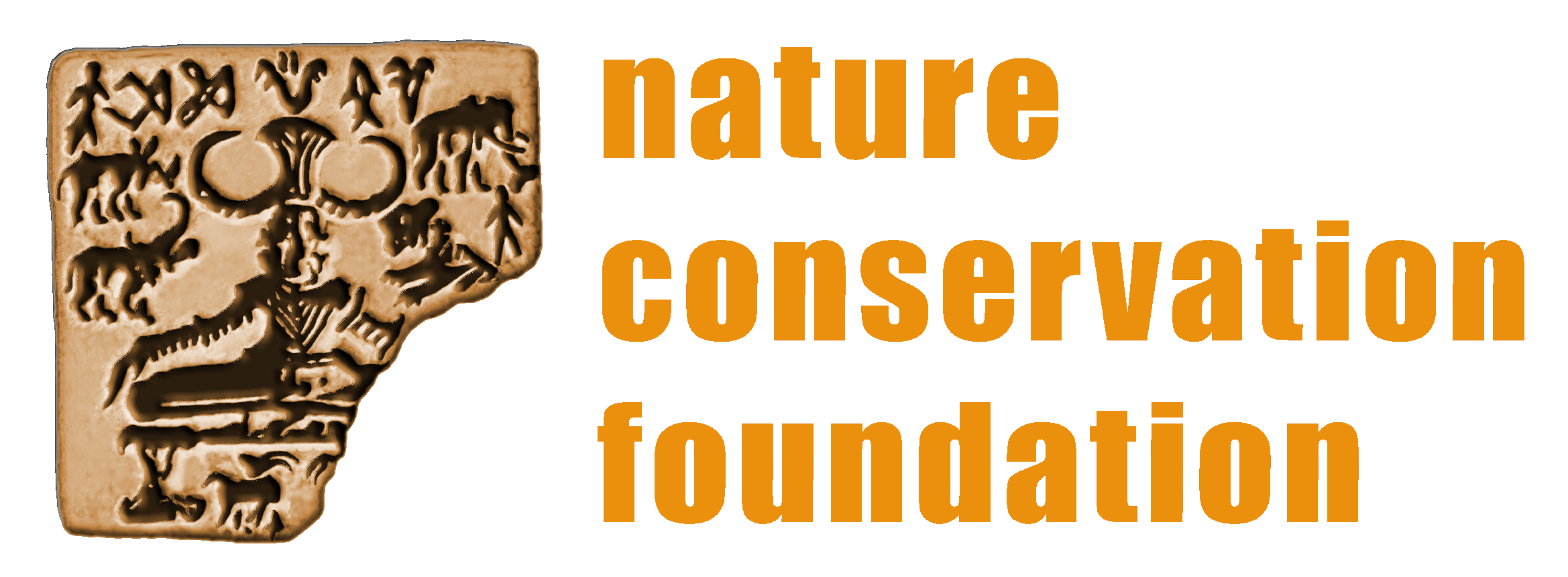
Nature Conservation Foundation (NCF)
Snow Leopard Trust partner in India, an expert on wildlife conservation and poaching in the country.
Read More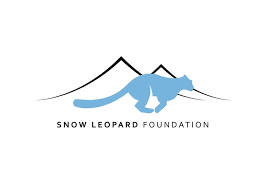
Snow Leopard Foundation in Pakistan (SLFP)
Snow Leopard Trust partner in Pakistan, an expert on snow leopard conservation in the country, and a core technical partner of the Pakistan Government towards implementing national snow leopard strategies.
Read More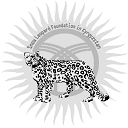
Snow Leopard Foundation in Kyrgyzstan (SLFK)
Snow Leopard Trust partner organization in Kyrgyzstan, expert on snow leopard research and conservation programs in Kyrgyzstan; SLFK is actively collating data on poaching and illegal wildlife trade through a rangers rewards program.
Read More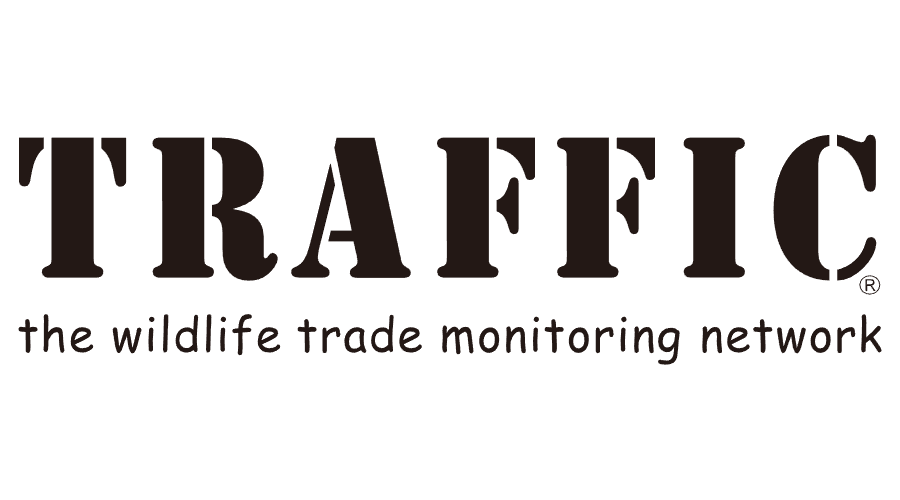
TRAFFIC
Wildlife trade is one of the world's most pressing conservation challenges, affecting hundreds of millions of people and thousands of wildlife species. TRAFFIC is a leading non-governmental organisation working globally on trade in wild animals and plants in the context of both biodiversity conservation and sustainable development.
Read More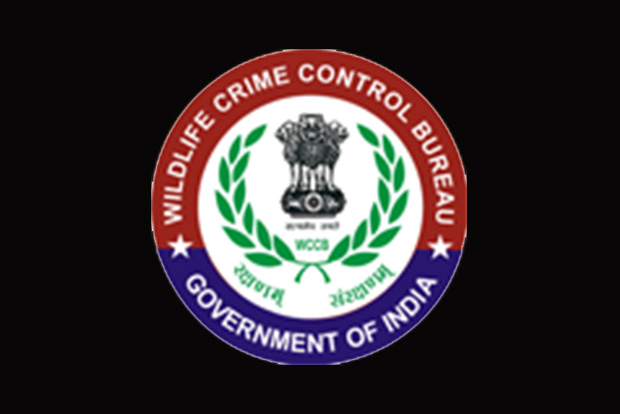
Wildlife Crime Control Bureau (WCCB) of India
The Wildlife Crime Control Bureau envisages attaining excellence as intelligence and enforcement agency, matching international standards in the field of wildlife crime intelligence in its core capabilities, functioning as one team integrated into the intelligence community. It aims to conserve the wildlife wealth by proper and effective intervention into matters related to capacity building of enforcement agencies in the field of wildlife crime enforcement and by providing professional assistance to create deterrence to the organized wildlife crime nexus.
Read More
We would also like to thank Aishwarya Maheshwari who has generously shared valuable datasets for this database.